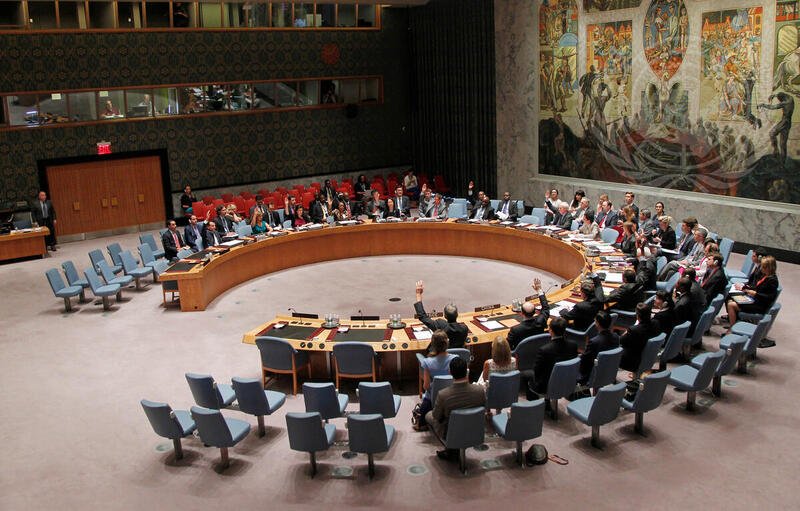Overview of the Security Council Sanctions Committee
The United Nations Security Council Sanctions Committee is a crucial institution tasked with managing sanctions aimed at maintaining international peace and security, particularly concerning threats posed by extremist groups such as ISIL (Da’esh) and Al-Qaida. The committee oversees a comprehensive sanctions list that is governed by several pivotal resolutions, namely resolutions 1267, 1989, and 2253, all of which have been instrumental in shaping the framework of international counter-terrorism efforts.
Resolution 1267, adopted in 1999, was the first to impose sanctions specifically against Al-Qaida, establishing a system of asset freezes, travel bans, and arms embargoes. Following this, resolution 1989, adopted in 2011, expanded the list to include individuals associated with these terrorist groups. Lastly, resolution 2253, enacted in 2015, further refined the criteria and procedures for including entities identified as threats, particularly those linked to the financial and logistical support of these organizations.
The importance of these sanctions lies in their role as preventive measures aimed at countering the activities of ISIL (Da’esh) and Al-Qaida by restricting their resources and operational capabilities. By systematically updating the sanctions list, the committee ensures that it adapts to the evolving nature of terrorism and the tactics employed by these groups. This dynamic approach enables member states to align their national laws with international mandates, facilitating coordinated global action against the ongoing threat of extremism.
Furthermore, the process of enacting sanctions is meticulously designed to ensure due process, allowing for the delisting and review of individuals and entities found to no longer pose a threat. Continuous updates and reviews of the sanctions list serve as a vital mechanism for the Security Council Sanctions Committee, highlighting the commitment to maintaining international security and demonstrating that such measures are not only reactive but also proactive in combating the global menace posed by ISIL (Da’esh) and Al-Qaida.
Recent Amendments to Sanctions Entries
On October 6, 2025, significant amendments were made to the ISIL (Da’esh) and Al-Qaida sanctions list, reflecting ongoing efforts to enhance international counter-terrorism measures. These changes included updates to the records of individuals known as Abd el Kader Mahmoud Mohamed el Sayed and Aris Sumarsono, both of whom have been previously identified as key associates of extremist organizations, primarily contributing to the propagation of terrorist activity across various regions.
Abd el Kader Mahmoud Mohamed el Sayed, whose prior sanctions entry highlighted his ties to organized networks supporting ISIL, has seen notable revisions to his listing. The amendments expanded his aliases, which include multiple variations of his name utilized in different contexts, aiding tracking efforts. Furthermore, the updated record specifies his countries of association, emphasizing his operations in conflict-prone areas and detailing his alleged participation in recruiting and logistical planning for terrorist actions.
Equally significant is the case of Aris Sumarsono, whose previous profile outlined his involvement in high-profile terrorist operations. The sanctions entry now includes additional criminal activities attributed to him, revealing a broader scope of his engagement with militant groups. This revised entry also elucidates his financial networks and the geographical regions where he has actively operated, shedding light on the complicated web of alliances that sustain such terrorist factions.
The implications of these amendments extend beyond mere administrative updates; they serve as crucial components in the ongoing fight against global terrorism. Accurate tracking of these individuals enhances collaborative efforts among nations to disrupt criminal enterprises linked to ISIL and Al-Qaida. By maintaining updated profiles and sanction entries, authorities can better strategize their counter-terrorism measures, consequently advancing the pursuit of justice on an international scale.
The Importance of Continuous Review and Updates
The dynamic nature of global terrorism necessitates a robust, ongoing process for reviewing and updating the ISIL (Da’esh) and Al-Qaida sanctions list. These sanctions serve as a critical instrument for the international community to combat terrorism, aiming to disrupt financial support and logistical operations of designated individuals and entities. Regular reviews are essential to ensure that these sanctions remain effective and pertinent in an ever-evolving threat landscape.
The procedural framework guiding these reviews is grounded in various Security Council resolutions. Each resolution outlines specific guidelines and timelines for examining the current sanctions list. Usually, this process includes a comprehensive assessment of the activities and affiliations of listed individuals and organizations. Such assessments must consider changes in the geopolitical climate and emerging trends related to terrorism financing and recruitment. The meticulousness of this review process is vital for maintaining the relevance of the sanctions.
One of the most significant challenges in this ongoing review is tracking the activities of individuals involved in global terrorism. Terrorist networks are often agile and adaptive, making it difficult for authorities to keep pace. These actors frequently change their tactics and affiliations, necessitating a responsive approach to sanctions. Furthermore, the international nature of terrorism means that collaboration among nations is crucial. Countries must share intelligence and insights to ensure that the sanctions list is reflective of the current threats posed by these global entities.
Ultimately, a continuous review process not only fortifies the sanctions imposed against ISIL and Al-Qaida but also ensures that the threats posed by evolving terrorist networks are effectively addressed. The utmost goal is to safeguard global security through a sanctions framework that is responsive, comprehensive, and up-to-date, thus enhancing the international community’s ability to combat terrorism effectively.
Accessing Updated Sanctions Information
To effectively monitor the changes in the ISIL (Da’esh) and Al-Qaida sanctions list, stakeholders must utilize reliable resources that provide updated information. The ISIL (Da’esh) and Al-Qaida Sanctions Committee offers a dedicated website that serves as a primary source for all pertinent data and documents related to sanctions. This website is integral for securing transparency and compliance, enabling member states and the public to access the latest listings with ease.
One important tool in accessing updated sanctions information is the consolidated list maintained by the United Nations Security Council. This extensive list includes details on individuals and entities that are subject to sanctions, as well as the specific measures imposed against them, such as asset freezes and travel bans. By regularly reviewing this list, countries and organizations can remain vigilant against any potential threats posed by sanctioned parties. The consolidated list is regularly revised to reflect any changes, ensuring that all data is accurate and reflects the most current situation.
Additionally, the narrative summaries provided on the sanctions committee’s website play a crucial role in understanding the rationale behind specific listings. These summaries offer insights into the reasons for sanctions, thus enhancing transparency in the decision-making process. They also assist in educating the public and relevant stakeholders on the serious implications of supporting or engaging with designated individuals or entities. Accessing information through these channels helps maintain awareness and accountability among member states regarding sanctions-related matters.
In conclusion, staying informed about the ISIL (Da’esh) and Al-Qaida sanctions list requires utilizing the comprehensive resources available through the Sanctions Committee’s website and the UN Security Council consolidated list. Transparency in these processes not only aids in compliance but also fosters an informed global community committed to countering the threats posed by these extremist entities.




